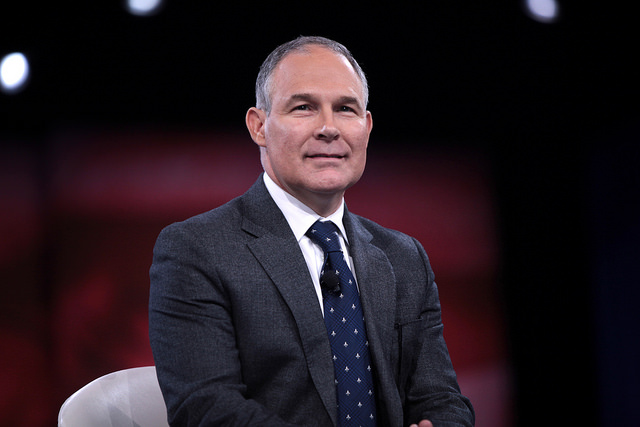
Last week President-elect Donald Trump tapped Scott Pruitt, the Attorney General of Oklahoma, to lead the Environmental Protection Agency (EPA). In Trump’s announcement he praised Pruitt as an “expert in Constitutional law” and stated that he “brings a deep understanding of the impact of regulations on both the environment and the economy.” As Pruitt has demonstrated during his tenure as Attorney General, he will work to “ensure American taxpayers and business are no long subject to abusive EPA overreach and unconstitutional regulatory diktats”.
Under the Obama administration, the EPA has become a political weapon used to block economic investment and job creation. Since 2009 the EPA has introduced nearly 4,000 new rules that have hurt the livelihoods of millions of Americans and cost taxpayers billions of dollars. Mr. Pruitt understands the negative effects of the EPA’s overreach and the benefits of the free market and limited government.
Here are the 5 EPA reforms that could occur under Pruitt’s leadership:
- Clean Power Plan. The rule mandates a 32 percent cut in the energy sector’s carbon emissions by 2030. As Attorney General, Pruitt has fought the Clean Power Plan at every stage, including in the draft stage before the rule was finalized last year. He has criticized the EPA for “ignoring the authority granted by Congress to states to regulate power plant emissions at their source”. This rule will undoubtedly be the top regulation for Pruitt to repeal as head of the EPA.
- Waters of the U.S. Rule (WOTUS). The WOTUS rule drastically expands the EPA’s jurisdiction, making small waterways like wetlands and ponds subject to federal rules and permitting processes. Pruitt took charge along with 17 other states to block the implementation of this rule. He has called the rule a “devastating blow to private property rights and is an unlawful power grab by the EPA over virtually all bodies of water in the United States”.
- Fracking Rule. This rule sets standards for well casing, transparency and wastewater storage for hydraulic fracturing, or “fracking” on federal land. Pruitt has long challenged the EPA’s failed attempts to link hydraulic fracturing to water contamination. He has stated that the hydraulic fracturing process is largely responsible for the boom in oil and gas production in the United States and that it is leading us towards greater energy independence.
- Ethanol Mandate. This rule requires renewable fuel to be blended into motor-vehicle fuels and fuels for non-road, locomotive, and marine engines in increasing amounts each year. As Attorney General, he filed a “friend of the court” brief in a lawsuit over the ethanol fuel mandate. In that filing, the Attorney General noted increased-ethanol fuel posed a risk to the fuel systems of many of the vehicles on the road today and could even void certain auto manufacturer’s warranties.
- Keystone Pipeline. By denying Keystone President Obama also snubbed his nose at the potential for job creation and economic development the KXL would provide to the U.S. As head of the EPA, Pruitt could be a powerful advocate for the Keystone pipeline. When discussing the effect of the pipeline, Pruitt has stated that Oklahoma’s economy has “already been boosted by the creation of good-paying jobs, and the project will continue to create jobs throughout the rest of the country.”
When Scott Pruitt becomes the next Administrator of the EPA, Americans will have a powerful advocate within the executive branch. Pruitt will work tirelessly to dismantle the regulatory regime created by the Obama administration in the energy sector and put an end to overreach by the EPA.
Photo Credit: Gage Skidmore

